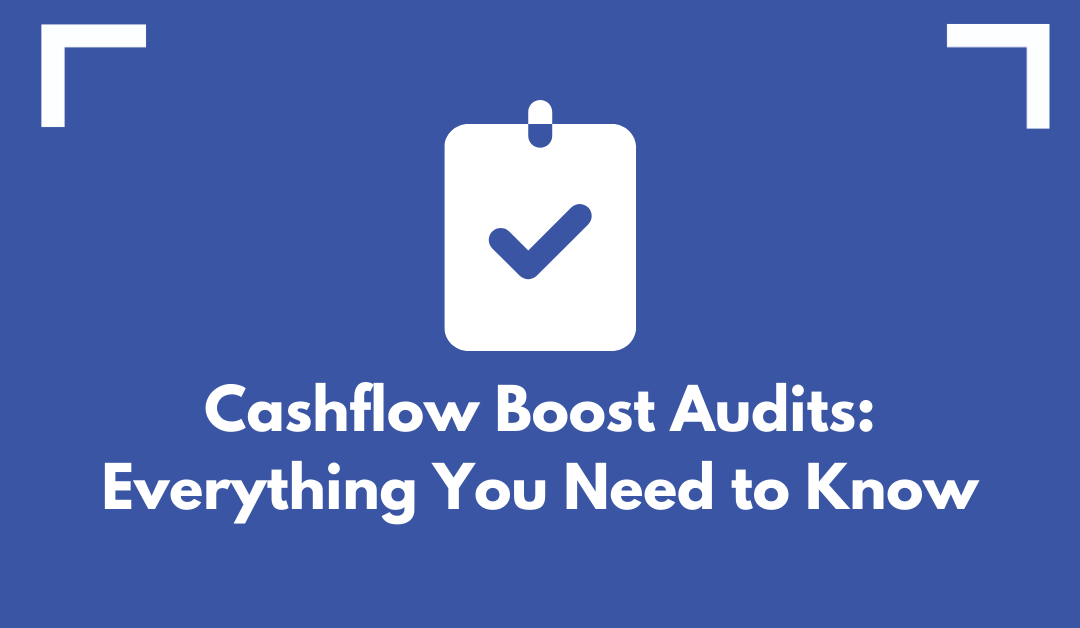The ATO has announced that it will be actively reviewing entitlements by conducting cashflow boost audits and JobKeeper audits.
At our accounting firm, we’ve seen this happen with several clients despite meeting eligible obligations, which has signalled that the ATO is very stringent on businesses meeting their obligations to receive the cashflow boost.
Using Single Touch Payroll and other digital reporting methods, the ATO is aware of businesses that are artificially inflating or manipulating to become eligible for the scheme.
Contents
What are the Cashflow Boost audits?
The ATO is actively investigating the integrity of business owners who are manipulating or scheming to receive the cashflow boost.
Notably, they are monitoring for sudden changes in business payments or structuring that may be deemed suspicious. Any spike in wages or PAYG withholdings will potentially attract the attention of a cashflow boost audit.
Cashflow Boost Penalties
Businesses and/or tax agents that have been identified as scheming to take advantage of the cashflow boost can expect to:
- Have their cashflow boost entitlement cancelled
- Repay the amounts received along with interest and penalties
- Tax agents or advisors may also be subject to civil penalties under the Promote Penalty Laws
What areas the Cashflow Boost audit will cover
The ATO has outlined specific arrangements that they are aware of:
- Business restructures that attempt to create eligibility for the cash flow boost.
- Arrangements to split a business which exceeds the $50 million aggregate turnover threshold, to create eligibility for both parts of the business.
- Re-characterisation of payments to salary and wages to maximise the cash flow boost
What will I need to supply during a Cashflow Boost audit?
If you do receive a call from the ATO as they would like to review the business cashflow boost eligibility, here are a few steps you should take:
- Refrain from providing too much detail regarding the business during the phone call.
- Ask the ATO specifically:
- What information they require
- How would they like the information sent to them (email is best)
- When is the due date for the information
- Are they able to contact your accountant rather than you (if you have an accountant)
- Advise the ATO that you will need to get back to them with the information required
- Speak to your accountant or Box Advisory Services to act on your behalf
Another essential thing to note is that the ATO is an external auditor and will not know the ins and outs of your business as well as you do.
They don’t always get things right as the rules of the Cashflow Boost is relatively new and complicated. Therefore, don’t be daunted by their position.
If you genuinely believe that you have not intentionally artificially created or inflated entitlements for Cashflow Boost, then the outcome generally is very favourable as long as you have the right records and evidence to show for this.
Having experienced several reviews with our clients, the ATO has requested additional documentation in the form of taxable supplies:
- Bank statements
- Employee data and information
- Payslips for employee
- Updated Single Touch Payroll Reporting
- Tax invoices
- Written communication between stakeholders to substantiate changes in payments
The ATO has released an integrity rule that outlines that the entity must not have entered a scheme for the sole or primary reason of seeking to manipulate the entity to either the first cashflow boost or the additional cashflow boost.
We have found that the ATO audit or review for Cashflow Boost often triggers :
- If an activity statement has not been lodged since 1 July 2018 or no income tax return has been lodged for the 2018/19 financial year.
- The monthly or quarterly wages significantly increased during January 2020 – June 2020 from July – December 2019.
- Wages were reported for associates and/or family members.
Please note that the above situations are usually triggered as the ATO has automated trigger points, but these may be genuine business transactions.
How can I ensure I’m compliant in case of a Cashflow Boost audit?
Given that the cashflow boost is an automated process that triggers payments if your business meets the eligibility criteria, entities or advisors that enter into a scheme to achieve this will be subject to scrutiny.
Therefore, provided that your intention was not to scheme or manipulate your payments, you can expect there to be a low chance of a cashflow boost audit. The same applies for upcoming JobKeeper audits.
Here are a few tips to ensure you will be compliant
- Lodge all 2019 – 2020 BAS and 2020 tax returns up to date for your business
- Ensure you have paid your employee’s net wages and superannuation on time
- Prepare your Single Touch Reporting up to date.
- Keep up to date bank statements.
- Ensure you have withheld the correct amount of tax for your employees
- If there have been any increases in salaries and wages for employees, document the reasons and have records regarding the changes.
- Maintain accurate and up to date accounting software
If you are concerned regarding this, speak to our team to see how we can help you.
Sign up to our monthly newsletter where we share exclusive small business and contractor advice!
Disclaimer:
Please note that every effort has been made to ensure that the information provided in this guide is accurate. You should note, however, that the information is intended as a guide only, providing an overview of general information available to contractors and small businesses. This guide is not intended to be an exhaustive source of information and should not be seen to constitute legal or tax advice. You should, where necessary, seek a second professional opinion for any legal or tax issues raised in your business affairs.


